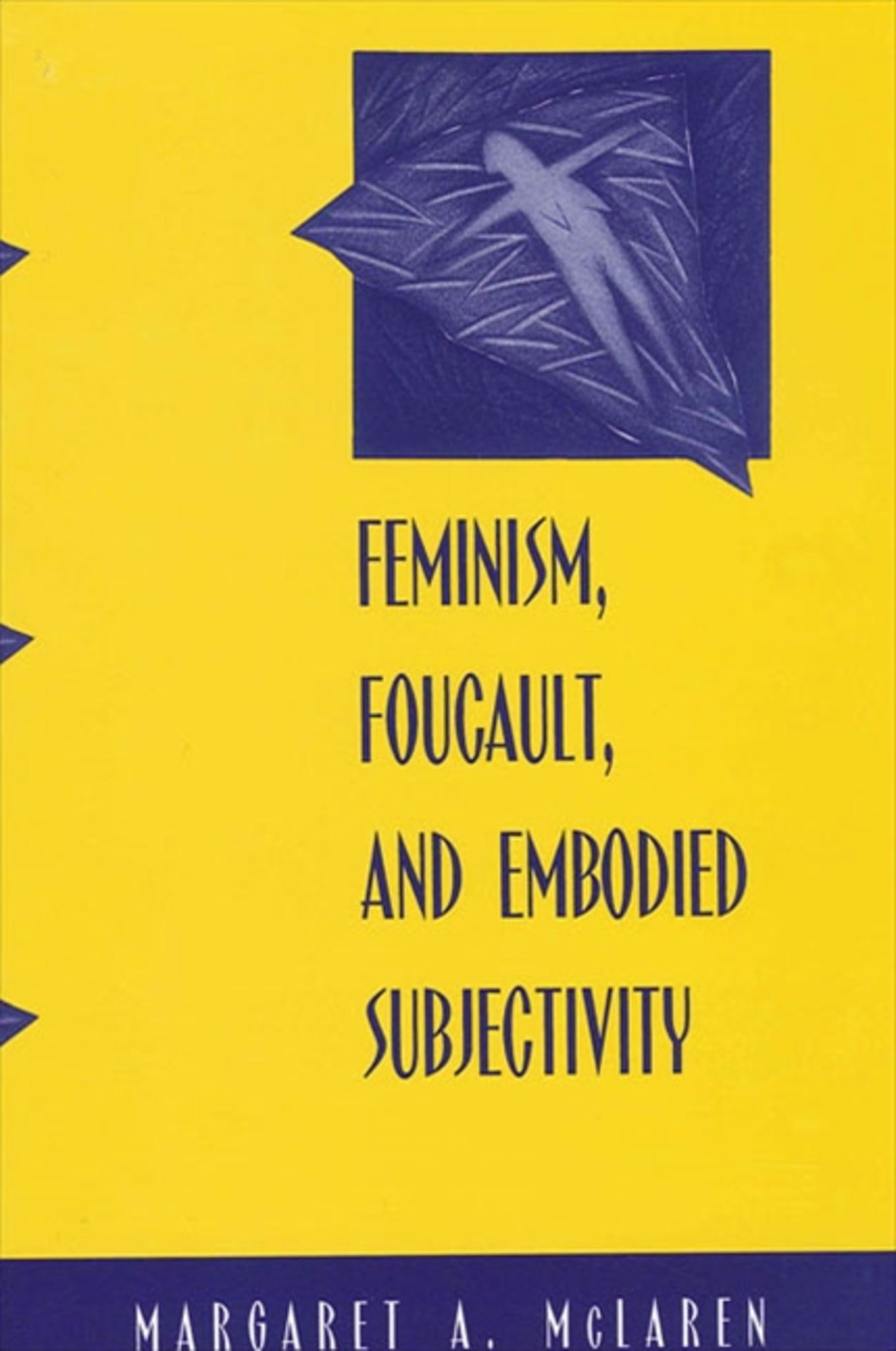We're sorry. An error has occurred
Please cancel or retry.
Feminism, Foucault, and Embodied Subjectivity

Some error occured while loading the Quick View. Please close the Quick View and try reloading the page.
Couldn't load pickup availability
- Format:
-
10 October 2002

Argues that Foucault's work employs a conception of subjectivity that is well-suited for feminist theory and politics.
Addressing central questions in the debate about Foucault's usefulness for politics, including his rejection of universal norms, his conception of power and power-knowledge, his seemingly contradictory position on subjectivity and his resistance to using identity as a political category, McLaren argues that Foucault employs a conception of embodied subjectivity that is well-suited for feminism. She applies Foucault's notion of practices of the self to contemporary feminist practices, such as consciousness-raising and autobiography, and concludes that the connection between self-transformation and social transformation that Foucault theorizes as the connection between subjectivity and institutional and social norms is crucial for contemporary feminist theory and politics.


"Feminism, Foucault, and Embodied Subjectivity remains invaluable for its rendering of a thoroughgoing account of feminist theorists' interaction with Foucault through the late 1990s." — Foucault Studies
"Engaging, clearly written, and well-argued, this book provides comprehensive and insightful overviews of much of the critical literature on Foucault. The author offers a sympathetic but not dogmatic reading of Foucault, giving careful reconstructions of some of his most important texts/arguments, and extends his ideas in interesting ways." — Amy Allen, author of The Power of Feminist Theory: Domination, Resistance, Solidarity
"This is one of the strongest and best-informed defenses of Foucault's continued usefulness to recent feminist debates. McLaren knows the territory well and addresses squarely the difficult issues. An impressive achievement." — Thomas R. Flynn, author of Sartre, Foucault and Historical Reason, vol. 1, Toward an Existentialist Theory of History
Acknowledgments
1. The Feminism and Foucault Debate: Stakes, Issues, Positions
2. Foucault, Feminism, and Norms
Postmodernism and Politics
Feminist Critics
Genealogy As Critique
Problems With Power
Foucault's Skepticism
Conclusion: Foucault and Feminist Resistance
3. Foucault and the Subject of Feminism
Feminist Critics
Foucault's Challenge to Subjectivity
Foucault's Refusal
Foucault's Genealogy of the Subject
Aesthetics of Existence: Life as a Work of Art
The Relational Feminist Subject
Conclusion
4. Foucault and the Body: A Feminist Reappraisal
Foucault's Body
Feminist Extenders: Disciplinary Practices and the Feminine Body
A Foucauldian Feminist Criticism of Foucault's Body
Feminist Resistance to the Deployment of Sexuality
Conclusion
5. Identity Politics: Sex, Gender, and Sexuality
Identity Politics
Foucault on Identity
Postmodern Criticisms of Identity Politics
Herculine Barbin and the Sexed Body
Bisexuality: Identity and Politics
Conclusion
6. Practices of the Self: From Self-transformation to Social Transformation
Foucault's Technologies of the Self
Self-Writing
Parrhesia (Truth telling)
Consciousness-Raising
Conclusion
Conclusion
Notes
Bibliography
Index



